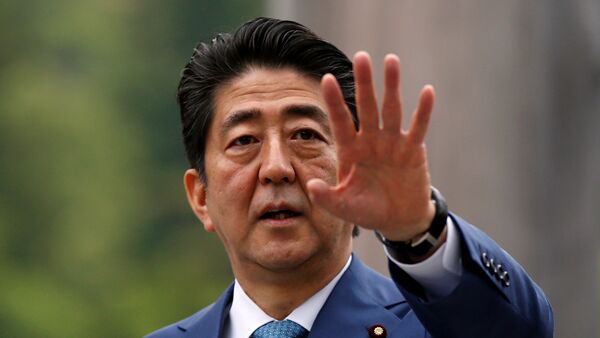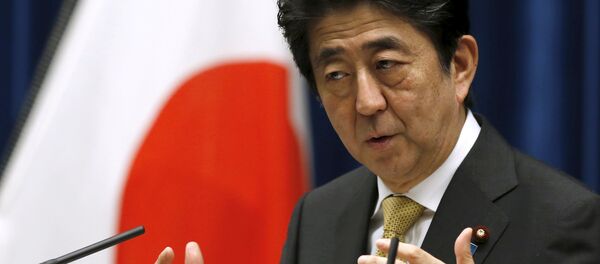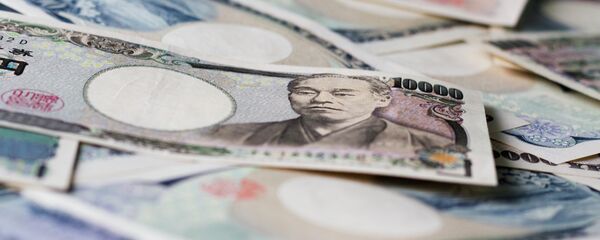Kristian Rouz — Shortly after Japanese Prime Minister Shinzo Abe announced the planned raise in sales tax would be delayed for 2 1/2 years and the economic reforms would progress through an intensified fiscal, rather than monetary, stimulus, a harsh critical response from the exports-dependent zaibatsu followed. Yasuhiro Sato, head of Mizuho Financial Group Inc., blasted Abe's leaning to increase budget spending in order to boost the economy, questioning the government's ability to decrease its deficit.
Abe met with the leaders of the ruling Liberal-Democratic Party (LDP) on Monday, having informed them of the government's decision to delay the planned raise in sales tax from 8% to 10% by two-and-a-half years from April 2017, when the hike had been initially planned to be enacted. Impressed by the economy's solid expansion in 1Q16, boosted by fiscal stimulus and robust consumer demand, Abe intends to make the Japanese consumer the main driving force behind the economic growth in order to overcome the currently excessive reliance on exports figures.
This is particularly important given the recent appreciation of the yen, impairing the nation's exports, despite the negative base interest rates regime and the overall ultra-accommodative monetary environment. Abe has come to a conclusion the old economic model has all but exhausted its growth potential.
"The premier's determination to postpone the tax increase seems to be very strong," Masahiko Komura, vice-president of the LDP, said after the meeting with Abe.
The export-reliant corporate sector's response followed, with Mizuho's Yasuhiro Sato blasting Abe's planning to base economic reform on increased budget spending. Abenomics has failed, Sato said, and the government's ability to meet its financial obligations is also fragile, in particular, given the decline in exports and corporate revenues.
"The worst scenario is [the government] will just announce a delay in the tax increase. That could send a message that Abenomics has failed or Japan is heading for a fiscal danger zone and then it will harm Japanese government bonds' credit ratings," Sato said.
Even though a delay in sales tax is seen as boosting overall domestic consumption, especially considering the government-planned raises in salaries and wages amidst underperforming inflation, consumption in April weakened after a solid performance in 1Q16. Macro data published on Monday revealed retail sales in April dropped, with lack of prices advance to blame. However, Abe hopes to boost inflation via fiscal stimulus.
"There will be a risk in either case of raising the tax or not, so as long as the government demonstrates a clear road map for fiscal reconstruction, Japanese credibility likely won't be hurt so much," Sato noted.
In March, Moody's said in a report that "postponing the next [sales-tax] increase regardless of the reason would pose a big fiscal burden for Japan."
That said, Abe's plans for economic transformation are meeting stiff opposition as it is perceived to run against the corporate sector's interests, as export revenues are poised to clump further as the yen gains, and the looming credit rating downgrades could further isolate Japan from global markets. However, as evidenced by lack of progress in overcoming the stagnation and disinflation during the past two decades, only a radical shift in economic policy would be a game-changer. Besides, Abe's attempt at economic remodelling could be successful given the ever-increasing influx of capital in the Japanese safe haven assets.





